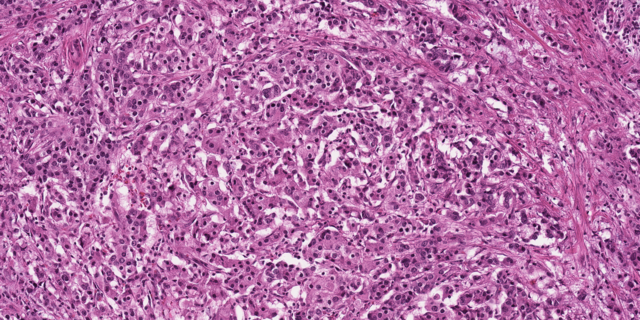Translational research forms the interface between clinical and experimental science in oncology. It examines how scientific findings from basic oncological research can influence the course of the disease in a clinical setting. This facilitates the rapid transfer of knowledge to clinical practice.
Conversely, observations from the treatment of breast cancer in a clinical setting find their way into scientific projects, thus enabling researchers to investigate molecular causes of the observations.
Prof. Dr. Carsten Denkert, Director of the Institute of Pathology at Philipps University of Marburg, is an internationally renowned breast cancer specialist who has collaborated with us on countless research projects over a period of many years.
Biomarkers as the basis for personalized therapy
The development of new biomarkers is particularly important for cancer research and hence a key element of translational research. Biomarkers help to better predict the course of the disease (prognostic biomarkers) while also facilitating an individualized approach to breast cancer treatment (predictive biomarkers).
Predictive biomarkers help to identify patients who are likely to benefit from a particular therapy. Molecular genetic analysis of tumor tissue has gained prominence in recent years. It facilitates the increasing personalization of cancer treatment, as targeted therapies can be selected based on tumor characteristics.





